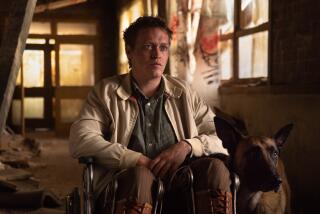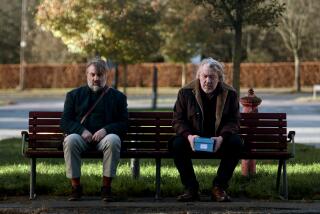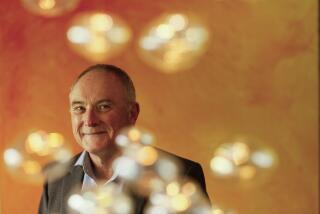Cinematographer Emmanuel Lubezki aimed high on ‘Birdman’
Oscar-winning cinematographer Emmanuel Lubezki is known for his long takes and bold innovation, but capturing an entire backstage comedy with the illusion of one unbroken shot? Working on “Birdman” with director Alejandro G. Iñárritu was a new experiment.
“I didn’t know if it was working or not,” says Lubezki, known to his friends as “Chivo” (“young goat” in Spanish). “It was very satisfying to feel the energy of the actors and the crew and everybody. Even if Alejandro is pushing you to the cliff, everybody is so passionate about it.”
Lubezki (“Children of Men,” “Gravity”) and the rest of the collaborators on “Birdman” dove into the divine madness of Iñárritu’s laboratory.
FULL COVERAGE: Oscars 2015
“Everybody’s on their toes,” says the cinematographer. “Often when you do a master shot, the actors are giving very little. It’s when you go in to their close-ups that you go, ‘Whoa, this guy’s amazing!’ But in this case, all the acting, the sound mixer, the focus puller, everybody knows this is how it’s going to be in the final, so you’d better do it right.”
In “Birdman,” protagonist Riggan Thomson (Michael Keaton) is an actor whose world is crumbling as he desperately reaches for new artistic heights. Presenting his story as one continuous, snaking take that never cuts away from the scenes traps the audience in Riggan’s experience.
“[Iñárritu] wanted to really immerse the audience in [Riggan’s] last couple of days before his life collapses — to feel they were in the labyrinth of his mind and the labyrinth of the back of the theater. He wanted to feel those moments emotionally rather than just show them objectively.”
It wasn’t just the camera movement but every part of the photography that fed this aim.
“The wide lenses allowed me to be very, very close to him but still feel the [others] around him. In a normal movie, a close-up is a couple feet from the actor. Here the camera is probably 3 inches from his eye; you can see microscopic performance. Then the camera takes you out again to an objective shot.”
Lubezki strove to use practical lighting to add to the realism of scenes — that is, when he wasn’t using stage lights to create subjective atmospheres.
“Lighting is a very mysterious part of filmmaking that a lot of directors are not in touch with. To many of them, lighting seems like more of a nuisance, something you have to do that takes time out of the process, when it creates the emotional background of the scenes. Alejandro and Alfonso [Cuarón] and Terry [Malick], Tim Burton, I’m sure Marty Scorsese, all these authors are well aware of it.”
In a moment of apparent glory for Thomson, the audience applauding what seems like a successful performance, Lubezki and Iñárritu use color and intensity to convey a darker undercurrent.
“The big follow-spot goes to him as he’s raising his hands, but he turns his face to Ed [Norton] and Naomi [Watts] kind of worried. On one side he has the bright spot of the audience clapping and his ego being fed by that, and the other side is the blue, sad knowledge that everything is collapsing and his ego brought them there.”
Lubezki calls Iñárritu a “surgeon” for the way he analyzes every part of the filmmaking process.
“There’s a moment people haven’t talked about where the hallways of the theater get narrower and narrower as his anxiety increases. I can feel the claustrophobia, the labyrinth getting tighter. Things like that, Alejandro’s very meticulous about.”
The two would go back and forth on everything from the heights of doorways to the colors of walls.
“Because we are friends, we allow ourselves to disagree and sometimes to disagree loudly and go into Spanish and talk about each other’s mothers and body fluids and everything. And that happens all the time,” says Lubezki.
“The director is the author of the movie, so in the end I’ll do whatever he wants me to do. But my job is to tell him what I see, and tell him honestly. Especially before you’re doing the shooting, you have to be absolutely sincere.”
More to Read
From the Oscars to the Emmys.
Get the Envelope newsletter for exclusive awards season coverage, behind-the-scenes stories from the Envelope podcast and columnist Glenn Whipp’s must-read analysis.
You may occasionally receive promotional content from the Los Angeles Times.






